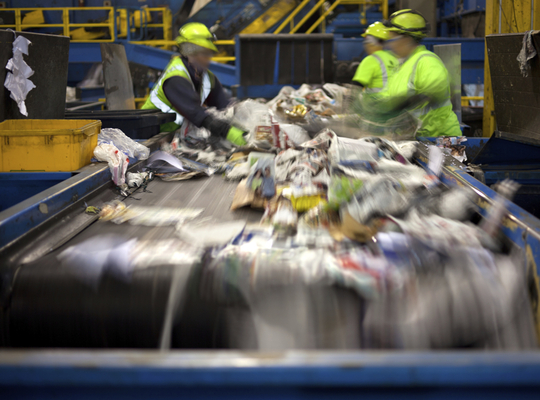You are here
Europe shows sustainable ambition in new waste policy

Europe has reached an agreement on ambitious and sustainable new waste legislation. This is intended to pave the way for the switch from a disposable model to a recycling model. MEP Mark Demesmaeker, who was involved in the negotiations, calls it an important step forward: "Thanks to these rules, Europe is gradually moving towards the successful Flemish standards. The message for the future is clear: prevent, reuse and recycle waste."
By 2035, Europeans must recycle or prepare for re-use 65% of household waste. Only 10% of this waste may end up in landfill. 70% of packaging waste must be recycled by 2030. Biological waste too must be collected selectively throughout the EU by the end of 2023. Moreover, the package of measures is clearly aimed at achieving a smaller waste mountain. For example, the intent is for the amount of food waste to be halved by 2030.
Good for the environment and the economy too
Furthermore, the new European legislation encourages manufacturers to work towards a better product design that enables reuse, recovery and recycling. "If we want to get our valuable raw materials back, it is essential that we significantly increase our recycling capacity," says Mark Demesmaeker. "Waste is worth real money as a valuable raw material. Managing it in a smart manner provides more jobs, more economic growth and fewer CO2 emissions. So switching to a recycling economy is not just about preserving the environment, it is also important for the Competitiveness The extent to which companies in one country can compete with similar companies in another country. A law came into force in Belgium in 1996 to monitor competitiveness. This stipulates that Belgian salaries may not evolve faster than the average of those in the three neighbouring countries. The Central Economic Council (CEC) performs an annual measurement to see if the objectives have been obtained. competitiveness of our companies."

